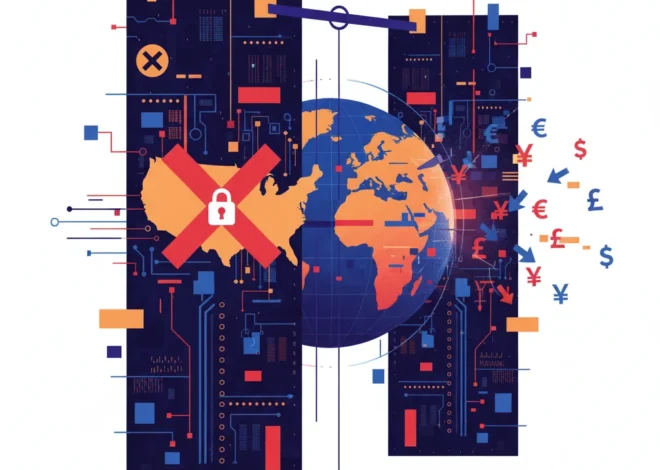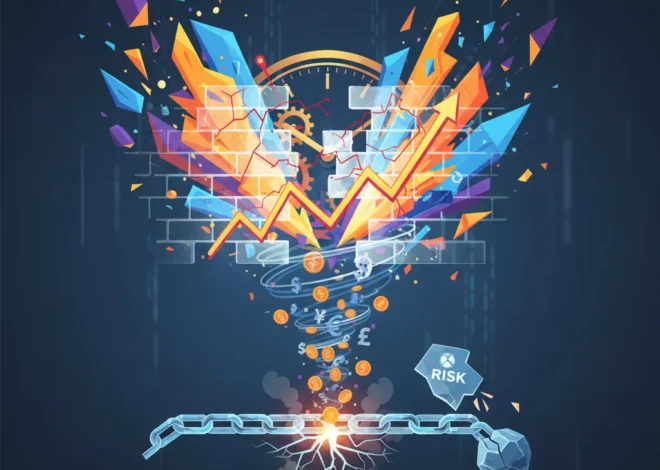
Venezuela on the Brink: An Economic Autopsy and Its Impact on Global Finance
Venezuela, a nation once synonymous with oil wealth and Latin American prowess, now stands as a stark case study in economic collapse. The country is caught in a perfect storm of internal mismanagement, crippling hyperinflation, and intense external pressure, primarily from the United States. For investors, finance professionals, and business leaders, the Venezuelan crisis is more than a distant headline; it’s a real-time lesson in geopolitical risk, the fragility of fiat currency, and the complex dynamics of the global energy market. This analysis will dissect the multifaceted pressures on Nicolás Maduro’s regime, explore the devastating economic realities, and evaluate the implications for international finance, investing, and the future of economics in a failed state.
The Anatomy of a Catastrophic Collapse
To comprehend the situation in Venezuela, one must first grasp the sheer scale of its economic devastation. This is not a typical recession; it is a multi-year depression that has erased decades of progress. The country’s Gross Domestic Product (GDP) has experienced one of the deepest contractions in modern history outside of wartime. According to the Financial Times, the economy has been in freefall, driven by a toxic combination of failed socialist policies, the nationalization of private industries, and the subsequent collapse of production.
The most visible symptom of this collapse is hyperinflation. The Venezuelan bolívar has become virtually worthless, forcing citizens to carry bricks of cash for basic purchases. This has obliterated savings, destroyed the traditional banking sector, and made rational economic planning impossible. The government’s response—printing more money to cover its deficits—only fuels the inflationary spiral, a classic and tragic chapter from the textbook of economics.
Below is a snapshot of key indicators illustrating the depth of Venezuela’s economic crisis over recent years. While exact figures vary due to the opacity of official data, these estimates paint a grim picture of the nation’s decline.
| Economic Indicator | Pre-Crisis (Approx. 2013) | Peak Crisis (Approx. 2018-2020) | Current State (Estimate) |
|---|---|---|---|
| Annual Inflation Rate | ~50% | Over 1,000,000% | High Triple Digits |
| GDP Contraction (Cumulative) | N/A | Over 75% since 2013 | Slight stabilization at a low base |
| Crude Oil Production (bpd) | ~2.5 Million | Under 500,000 | ~700,000 – 800,000 |
| Population Living in Poverty | ~30% | Over 90% | Over 90% |
This economic implosion has triggered a humanitarian crisis, with millions fleeing the country, creating the largest refugee crisis in recent Latin American history (source). The breakdown of infrastructure, healthcare, and public services has left the remaining population in a state of desperation.
The Penny Paradox: Why a Coin Shortage Signals a Revolution in Finance and the Economy
The Oil Curse and the Hammer of Sanctions
Venezuela’s fate is inextricably linked to oil. As a classic “petro-state,” its economy has been overwhelmingly dependent on crude exports for decades. This reliance created immense wealth during oil booms but left the nation vulnerable to price shocks and fostered systemic corruption. The state-owned oil company, PDVSA, once a world-class operator, has been hollowed out by mismanagement, underinvestment, and political cronyism.
This pre-existing weakness was magnified exponentially by stringent U.S. sanctions. Beginning under the Obama administration and intensifying significantly under President Trump, these measures targeted the heart of the regime’s financial lifeline: the oil sector. Sanctions have effectively locked Venezuela out of the U.S. financial system, complicated its ability to sell crude on the international market, and prevented it from importing necessary diluents to process its heavy oil. The intended goal was to choke off revenue to the Maduro regime and force a political transition. However, the result has been a further strangulation of an already dying economy, with many arguing the humanitarian cost has been catastrophic (source).
The sanctions created a vicious cycle: as oil production plummeted due to mismanagement, the sanctions made it nearly impossible to secure the financing or technology needed for repairs, causing production to fall even further. This has profound implications for global energy markets, as Venezuela sits on the world’s largest proven oil reserves, a massive resource that remains largely offline.
Survival Economics: The Rise of Fintech and Blockchain
In the ruins of Venezuela’s formal economy, a fascinating and desperate parallel financial system has emerged. With the traditional banking system rendered useless by hyperinflation and capital controls, citizens and businesses have been forced to innovate. This is where the concepts of fintech and blockchain have moved from theoretical discussions to practical survival tools.
The de facto dollarization of the economy is the most significant trend, with the U.S. dollar being the preferred medium for any meaningful transaction. However, physical dollars are scarce. This has led to the rise of digital payment platforms and financial technology solutions. Services like Zelle, a U.S.-based payment network, became an unlikely lifeline for Venezuelans receiving remittances from abroad.
More profoundly, Venezuela has become a global hotspot for cryptocurrency adoption. For many, Bitcoin, Tether (USDT), and other digital assets are not a speculative investment for their trading portfolio; they are essential tools for wealth preservation. In an environment where the national currency can lose half its value in a week, the volatility of Bitcoin seems stable by comparison. Blockchain technology offers a way to transact and store value outside the control of a predatory government, a powerful use case that demonstrates the original vision of decentralized finance.
The Billion-Euro Bitter: Unpacking the Campari Group's Tax Evasion Allegations
Geopolitical Tensions and Investor Calculus
The economic pressure is compounded by geopolitical maneuvering. The mention of a U.S. military build-up in the Caribbean, often framed as part of counter-narcotics operations, is perceived by Caracas as a direct threat. This adds a layer of military tension to the economic and political standoff, increasing the risk of miscalculation and regional instability. For investors, this elevates the geopolitical risk premium for all of Latin America.
From an investing perspective, Venezuela is the ultimate high-risk, high-reward proposition. The country is in default on its government and PDVSA bonds, which trade on the secondary market for pennies on the dollar. These are the playground of distressed debt funds, or “vulture funds,” who are betting that a future, post-Maduro government will eventually restructure the debt and honor a portion of its claims. Buying these bonds is a long-term gamble on political change.
There is no functioning domestic stock market to speak of for international investors. The real play is on the assets-in-exile (like U.S. refiner Citgo, a PDVSA subsidiary) and the potential for multinational corporations in the energy, mining, and consumer sectors to re-enter the market after a political transition. The key for any potential investor is to watch the political triggers: a credible election, a significant military fracture, or a negotiated exit for Maduro’s inner circle. Until then, direct investment remains largely untenable.
Market Tremors: Analyzing the Financial Fallout of a Public Safety Crisis
Conclusion: A Tipping Point Looms
Venezuela is a nation at a crossroads, squeezed between a failed domestic economic model and immense international pressure. The suffering of its people is a stark reminder of how quickly wealth can be destroyed and institutions can crumble. The crisis offers critical lessons for the world of finance: it underscores the foundational importance of sound monetary policy, the devastating power of hyperinflation, and the complex, often unpredictable, impact of economic sanctions.
For the Maduro regime, the pressure is immense and growing. For the international community, the challenge is to foster a peaceful transition without deepening the humanitarian catastrophe. And for investors and financial professionals, Venezuela remains a cautionary tale and a high-stakes geopolitical puzzle. The eventual resolution of this crisis, whenever and however it comes, will not only determine the fate of 30 million people but will also send ripples through the global energy, finance, and investment landscapes for years to come.


